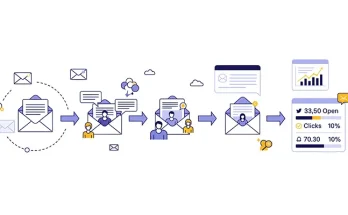In the competitive landscape of service-based businesses, a well-crafted marketing plan is essential for attracting and retaining clients, building brand visibility, and achieving sustainable growth. Unlike product-based businesses, service-based companies rely on offering intangible expertise and experiences, making their marketing strategies distinct. This article delves into the critical components of developing a comprehensive marketing plan specifically tailored to service-based businesses, providing valuable insights and practical strategies for success.
Understanding the Unique Nature of Service-Based Businesses
Intangibility and Personalization
Service-based businesses offer intangible solutions, such as expertise, skills, and personalized experiences, rather than physical products. This inherent intangibility requires a distinct approach to marketing, focusing on communicating the value of expertise and establishing trust-based relationships with clients.
Customer-Centric Focus
The success of service-based businesses hinges on understanding and addressing the unique needs and pain points of their clients. Marketing efforts should revolve around building strong, lasting connections with customers, emphasizing the benefits and outcomes of the services provided.
Key Components of a Comprehensive Marketing Plan
Market Research and Analysis
Thorough market research is foundational to understanding the target audience, industry trends, competitive landscape, and opportunities for growth. Analyzing market data and customer insights enables service-based businesses to tailor their marketing strategies to meet the specific needs and preferences of their clientele.
Brand Positioning and Differentiation
Identifying the unique value proposition and defining the brand’s positioning in the market is crucial for differentiation. Service-based businesses must articulate how their expertise, approach, and customer experience set them apart from competitors, creating a compelling narrative that resonates with the target audience.
Target Audience Identification
Developing detailed buyer personas that represent ideal clients helps in crafting personalized and targeted marketing messages. Understanding the demographics, behaviors, and pain points of the target audience equips businesses to create relevant and impactful marketing campaigns.
Online Presence and Digital Marketing
Establishing a strong online presence through a professional website, engaging content, and active participation on relevant digital platforms is fundamental. Leveraging search engine optimization (SEO), content marketing, social media, email marketing, and other digital channels can drive visibility, generate leads, and nurture client relationships.
Thought Leadership and Content Strategy
Positioning the business as an authoritative voice in the industry enhances credibility and attracts potential clients. Developing a robust content strategy that includes blog posts, whitepapers, webinars, and case studies can demonstrate expertise, address client pain points, and showcase the value of the services offered.
Client Referral and Testimonials
Leveraging client testimonials, case studies, and referrals as part of the marketing plan is invaluable for building trust and credibility. Positive client feedback serves as powerful social proof, instilling confidence in potential clients and reinforcing the quality of the services provided.
Networking and Relationship Building
Engaging in networking events, industry conferences, and collaborative partnerships is essential for expanding professional connections and fostering relationships in the business community. Building a strong network can lead to referrals, opportunities for collaboration, and increased visibility within the industry.
Implementation and Measurement of Marketing Initiatives
Consistent Monitoring and Adaptation
Regularly tracking the performance of marketing initiatives is essential for identifying successful strategies and areas for improvement. By analyzing key performance indicators (KPIs) such as website traffic, lead generation, and client acquisition, businesses can adapt their marketing plan to optimize results.
Flexibility and Agility
The dynamic nature of the market requires service-based businesses to remain flexible and adaptive in their marketing approach. Being open to adjusting strategies based on market shifts, client feedback, and industry developments is crucial for maintaining relevance and staying ahead of the competition.
Developing a comprehensive marketing plan tailored to the unique dynamics of service-based businesses is a strategic imperative in today’s competitive environment. By aligning marketing efforts with the intangible nature of services, understanding the target audience, leveraging digital channels, and prioritizing relationship-building, service-based businesses can establish a strong market presence, foster client loyalty, and drive sustainable growth. Embracing a client-centric approach and continuously refining marketing strategies will empower service-based businesses to thrive in an ever-evolving marketplace, ultimately achieving their business objectives and maximizing their impact.





